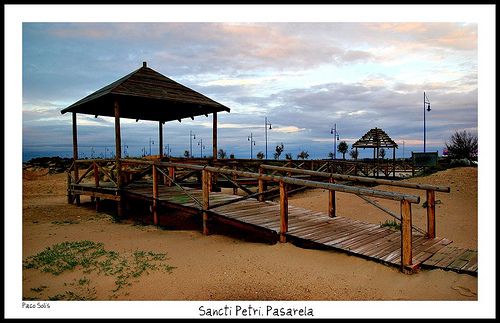1) If you don’t master Spanish sufficiently, ask the owner to provide translation of the contract or look for a translator yourself and pay these services 50-50. Need to add that the most advisable tip is to have a bilingual lawyer in charge of your purchase of course.
2) Date and place of contract.
3) Check who is signing on behalf of the selling party: It is imperative to obtain a Land Registry “Nota Simple” of the property to check the current owners and any speciality involved in the ownership. There is an English version of this service at: www.registradores.org).
- If the transaction is between two individual parties, the document must be signed by all the registry owners, themselves or through sufficient proxies.
- If a house is part of the marital community, the document must be signed by both husband and wife. The character of the good ( either if commun or privative) is mentioned in the Nota Simple.
- If the seller gives power of attorney to another person to sign the private contract, the authorised person will have to present the authorised notary copy, it means. The power of attorney must grant enough power for the sale, so it is very important to check, by reading the power of attorney deed, that the authorised person can sign the sale (these mentions are among the faculties stated in the deed).
- If the seller are the heirs of the Land Registry owner, it is necessary to check on the probate documents together with the sales one themselves. They will have to adjudicate the Inheritance before you signing the final Notary deed for the transmission of ownership.
In al the cases where the sellers are not the registral holders of full ownership on the property, it is advisable either to
(a) Wait for the Land Registry changes to be produced and have contract sellers coinciding with Registry owners
or
(b) Place a cancellation condition clause by which if the contract sellers can not finally register their rights, the purchase will be cancelled with devolution of principal plus legal interests.
If you can wait, I would better advise you to to do as (a)
4) If the hosue was rebuilt or renewed make sure this was done with the required Work License from the Town Hall and that the “ Decalaracion de Obra Nueva” has been made before a Notary and duly registered in the Land Registry. Again, ask for a Nota Simple to do so. Catastro´s descriptive and graphic note is also needed here to see how the Land Registry description of the house is equivalent to Catastro´s and to reality. If Catasro or reality and Land Registry do not match, there are some Registry procedures needed and it would be advisable to have them paid by the seller.
5) If you are buying a country house, check on water, phone and electricity providers. If a well is part of the contract, be sure that it has been legalised. If there is a river passing by, be sure that you have irrigation rights properly registered in the corresponding Confederacion hidrografica.
( to be continued, probably tomorrow)
By Maria L. de Castro
www.costaluzlawyers.es

Chiclana ( Cadiz) By Sidi Guariach at Flickr.com
(142).jpg)